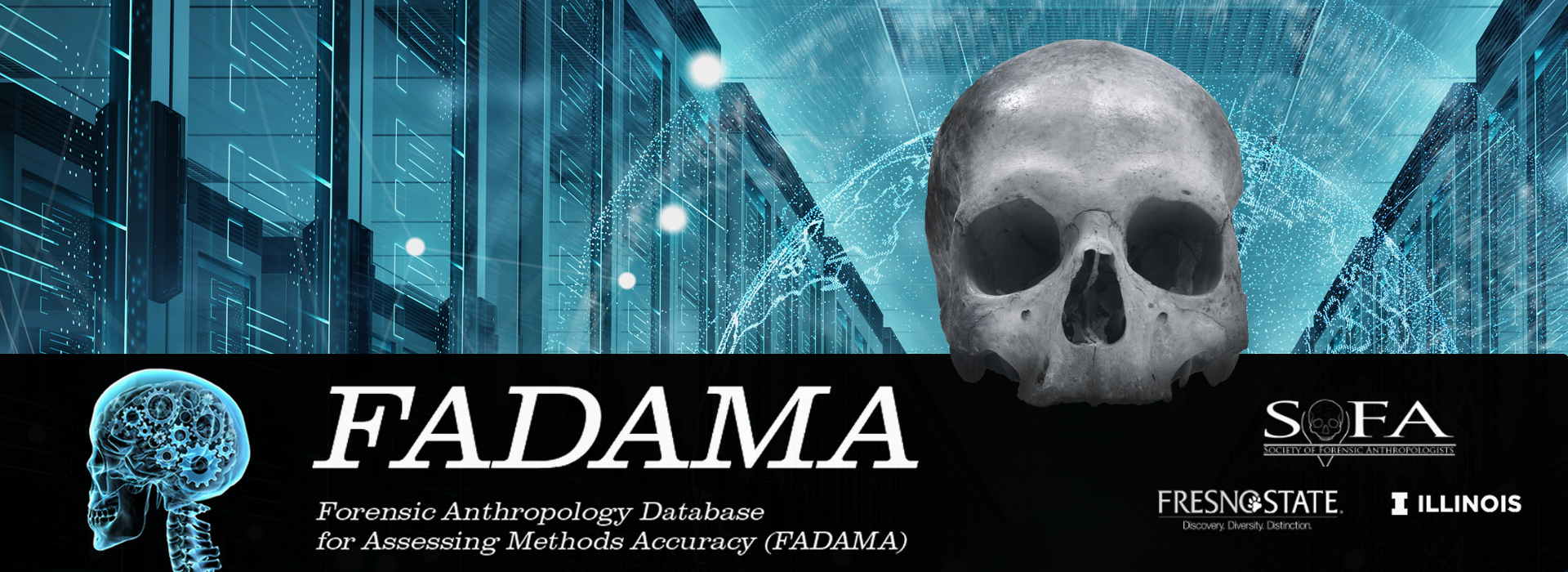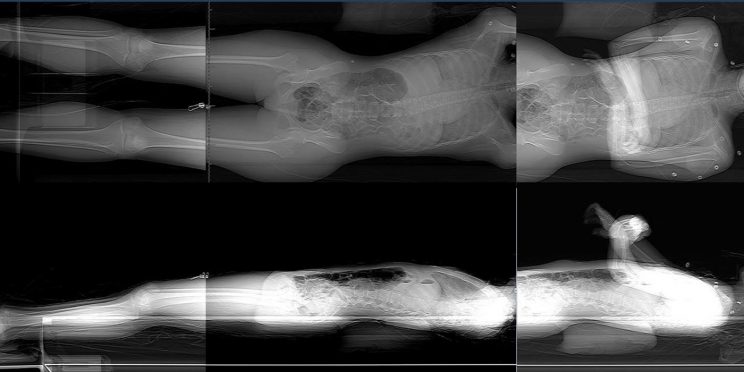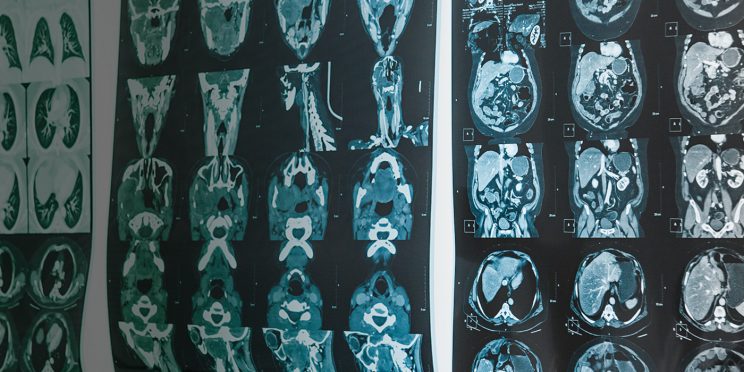This webinar originally occurred on August 31, 2021
Duration: 1 hour
Overview
Data availability is the cornerstone of progression of any scientific inquiry. For forensic anthropologists, the data sources are limited, as they must be contextually appropriate (temporal, geographical, etc.) for study and application in forensic research on human variation. Often, this means that data gleaned from ongoing forensic casework is the ideal data reference set. Furthermore, it is imperative that research with broad-reaching applications for the field of forensic anthropology (e.g. sex estimation methods, or accuracy assessment for casework) be based on a data set that is representative of the context to which it will apply, such as U.S. forensic anthropology casework.
In this webinar, the presenters highlighted the Forensic Anthropology Database for Assessing Methods Accuracy (FADAMA), which is a virtual repository of forensic anthropology case reports and accompanying data on the actual biological profile of the deceased individual. This webinar covered the goals, motivations, and ethical considerations behind the development of the database as well as the uses and limitations of the data available for research applications. Whether attendees are looking for a dynamic dataset for teaching purposes, starting on their first research project, or building on broad-reaching questions, knowing what data is available and how to maximize the data’s analytical potential is a must. Furthermore, in the time of COVID-19, field research is limited, impacting everyone from graduate students to senior researchers. These virtual repositories offer an alternative and house data that can answer an abundance of research questions, all while being accessed safely and securely online.
This webinar impacted the forensic science community by bringing together detailed and relevant information about the application and research potential of a newly available database for forensic anthropology methods development, method accuracy performance, and casework accuracy assessment. The presenters delivered details on the development, accessibility, application, and limitations of FADAMA, and prepare researchers to seize on the potential of this data to answer important questions in the field of forensic anthropology.
Detailed Learning Objectives
Attendees will gain a working knowledge of the FADAMA database including (but not limited to):
- The goals, motivations, and ethical considerations behind the development of the database.
- The uses and limitations of the data available for research applications.
- In-depth understanding of tips and tricks for correctly utilizing and analyzing the downloaded datasets.
Presenters
- Dr. Cris Hughes | University of Illinois in Urbana-Champaign, IL
- Dr. Chelsey Juarez | California State University, Fresno in Fresno, CA
Funding for this Forensic Technology Center of Excellence webinar has been provided by the National Institute of Justice, Office of Justice Programs, U.S. Department of Justice.
The opinions, findings, and conclusions or recommendations expressed in this webinar are those of the presenter(s) and do not necessarily reflect those of the U.S. Department of Justice.
Contact us at ForensicCOE@rti.org with any questions and subscribe to our newsletter for notifications.




